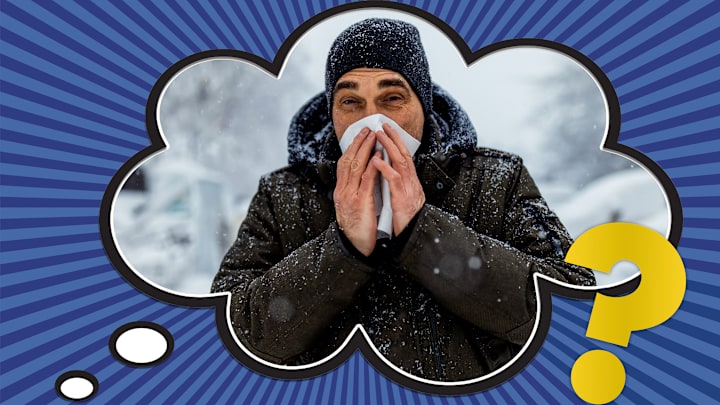While it’s possible to catch a viral illness any time of the year, winter seems to bring an influx of sickness. Flu shots are normally given in anticipation of seasonal spread; anecdotally, you may find people who have “come down with something” or “caught a bug.”
We often think of cold weather bringing people indoors as a big reason why colds and the flu seem to spread, but is that the only reason? Or is it something else?
The Science Behind a Winter Uptick in Illnesses
While it’s certainly true that spending more time indoors can put you in closer proximity to others and thereby raise the risk of transmission, there are other factors at play. According to the National Institutes of Health, the lipid (or fatty) coating of influenza cells tends to turn into liquid at higher temperatures, making it less stable and transmissible. In colder weather, however, the lipid membrane remains intact, allowing for a sturdier and more persistent virus. When it comes in contact with the respiratory tract, the coating dissolves and begins to infect its host.

That’s not the only way viruses can benefit from cooler temperatures. Winter also means less humidity in the air, both indoors and outside. Less moisture means viruses can travel farther and remain in the air longer without binding to water molecules. Less indoor ventilation can also lead to stale air and persistent, lingering germs.
You May Also Like ...
- Can I Get My Flu Shot and COVID Vaccine at the Same Time?
- Why You're Probably Washing Your Hands All Wrong
- 10 Facts About the Flu Shot
Does Cold Weather Weaken the Immune System?
What about physiological reasons? It’s possible that cold weather may impact our immune systems. A 2023 study in The Journal of Allergy and Clinical Immunology looked at the possibility of immune defense in the nose growing less effective as temperatures drop, though only four subjects were studied and no firm conclusions were drawn. There’s also no general consensus over whether simply being cold affects our immune systems. Although it’s possible that fluctuating body temperatures can affect our ability to fight off illness, heading outside with wet hair or grabbing the mail in a T-shirt are unlikely to be major factors in getting sick.

While winter may increase your risk of catching something unpleasant, the same general principles to stay healthy still apply. Frequent handwashing can help reduce the spread of germs, as can regularly disinfecting surfaces; try to avoid sharing utensils or drinking glasses with others, too. Vaccinations can also lower your risk of infection.
A version of this story originally ran in 2022; it has been updated for 2026.
